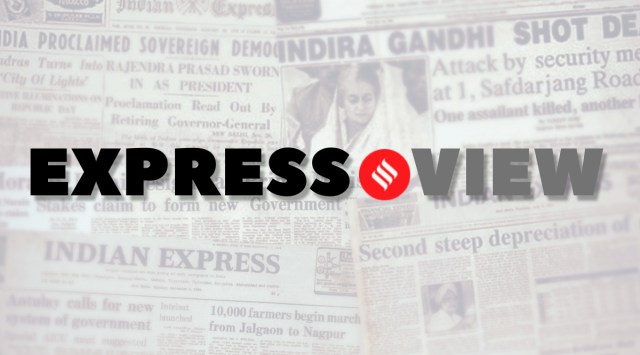
Can educational institutions impose a dress code that bars hijab-wearing Muslim students from classrooms? On Thursday, a two-judge bench of the Supreme Court couldn’t arrive at a unanimous decision. Responding to a batch of appeals by students from Karnataka, Justice Sudhanshu Dhulia quashed the state government’s order of February 5 that had empowered management committees of pre-school colleges to bar headscarves from the premises of educational institutions. Justice Hemant Gupta, however, concurred with the Karnataka government, saying “it was only to promote uniformity and encourage a secular environment” in the classroom. The dissonance on the bench speaks of the complex questions raised in arguments presented before the court — the powers of the state to impose reasonable restrictions on the freedom of religion and conscience, the essential practices doctrine, individual choice and community identity.
Even then, an underlying thematic unity can be discerned in the split verdict: Repudiating the contention that the doctrine of essential practice is germane to the case, Justice Dhulia underlined that what lies at the core is “a matter of choice”, and a concern regarding education. “This case therefore has also to be seen in the perspective of the challenges already faced by a girl child in reaching her school”, he said. And, in upholding the Karnataka HC ruling that hijab is not an essential Islamic practice, Justice Gupta too seems to be saying that religion is not at the centre. This framing of the issue by the SC bench is significant. On December 27, after Muslim students in the government-run Pre-Government College in Karnataka’s Udupi district were prevented from entering classrooms on account of wearing hijab, the issue assumed communal overtones. Hijab bans were imposed in other parts of the state. Instead of dousing fires, the state government upheld the ban and directed that colleges ensure that “clothes which disturb, equality, integrity and law and order shouldn’t be worn”. The Karnataka HC ratified this order on March 15 by invoking the essential practices doctrine. This, according to Justice Dhulia was “a wrong path”. Invoking the SC’s verdict in the Bijoe Emmanuel (1986) case, he underlined that the issue at hand is “that of choice, nothing more nothing less”. And in what should be a beacon for future jurisprudence on the issue: “The question this Court would therefore put before itself is also whether we are making the life of a girl child any better by denying her education, merely because she wears a hijab”.